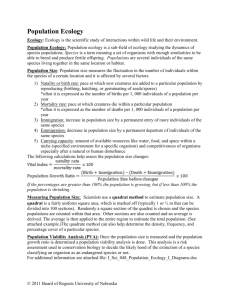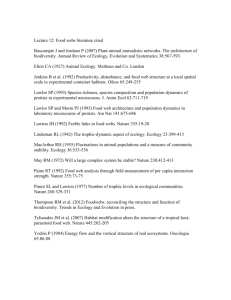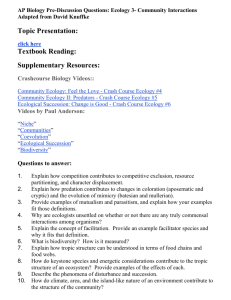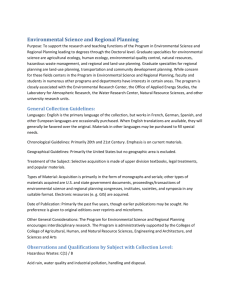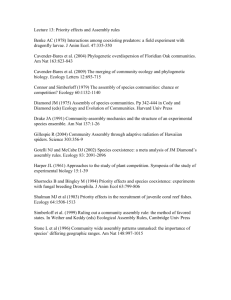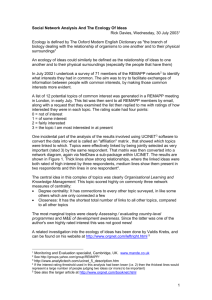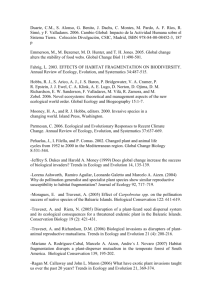Science IA Population Ecology - New York Performance Standards
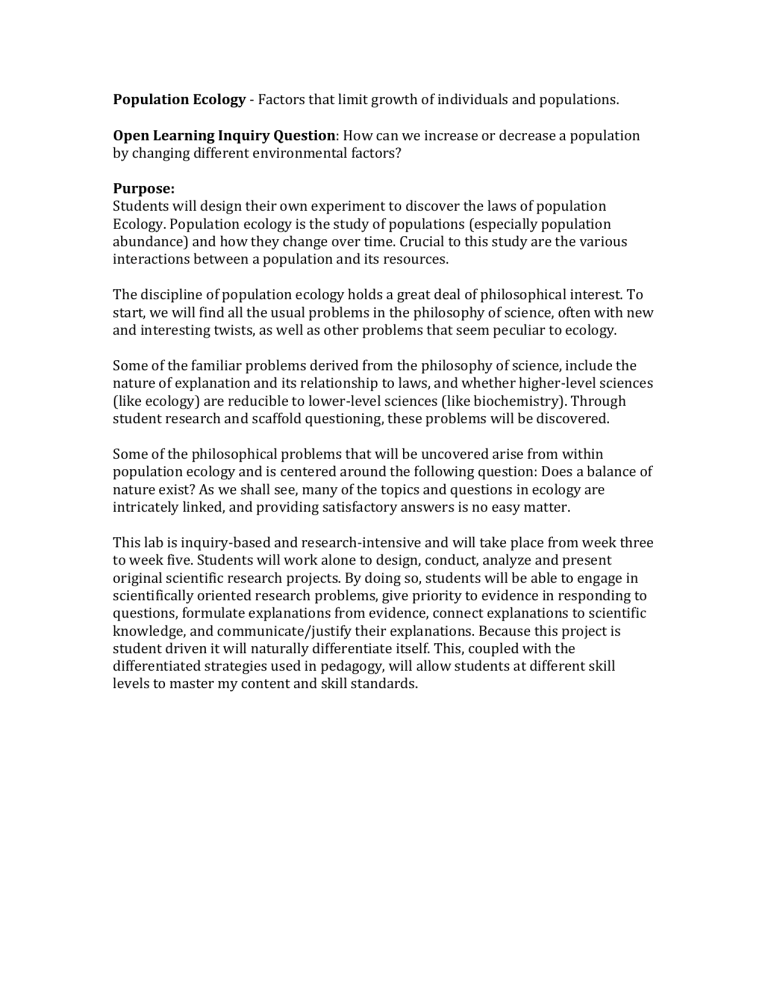
Population Ecology - Factors that limit growth of individuals and populations.
Open Learning Inquiry Question: How can we increase or decrease a population by changing different environmental factors?
Purpose:
Students will design their own experiment to discover the laws of population
Ecology. Population ecology is the study of populations (especially population abundance) and how they change over time. Crucial to this study are the various interactions between a population and its resources.
The discipline of population ecology holds a great deal of philosophical interest. To start, we will find all the usual problems in the philosophy of science, often with new and interesting twists, as well as other problems that seem peculiar to ecology.
Some of the familiar problems derived from the philosophy of science, include the nature of explanation and its relationship to laws, and whether higher-level sciences
(like ecology) are reducible to lower-level sciences (like biochemistry). Through student research and scaffold questioning, these problems will be discovered.
Some of the philosophical problems that will be uncovered arise from within population ecology and is centered around the following question: Does a balance of nature exist? As we shall see, many of the topics and questions in ecology are intricately linked, and providing satisfactory answers is no easy matter.
This lab is inquiry-based and research-intensive and will take place from week three to week five. Students will work alone to design, conduct, analyze and present original scientific research projects. By doing so, students will be able to engage in scientifically oriented research problems, give priority to evidence in responding to questions, formulate explanations from evidence, connect explanations to scientific knowledge, and communicate/justify their explanations. Because this project is student driven it will naturally differentiate itself. This, coupled with the differentiated strategies used in pedagogy, will allow students at different skill levels to master my content and skill standards.



